Latest News
“Expeditious measures must be taken to address the challenges, barriers, and discriminatory practices against women” – Prime Minister
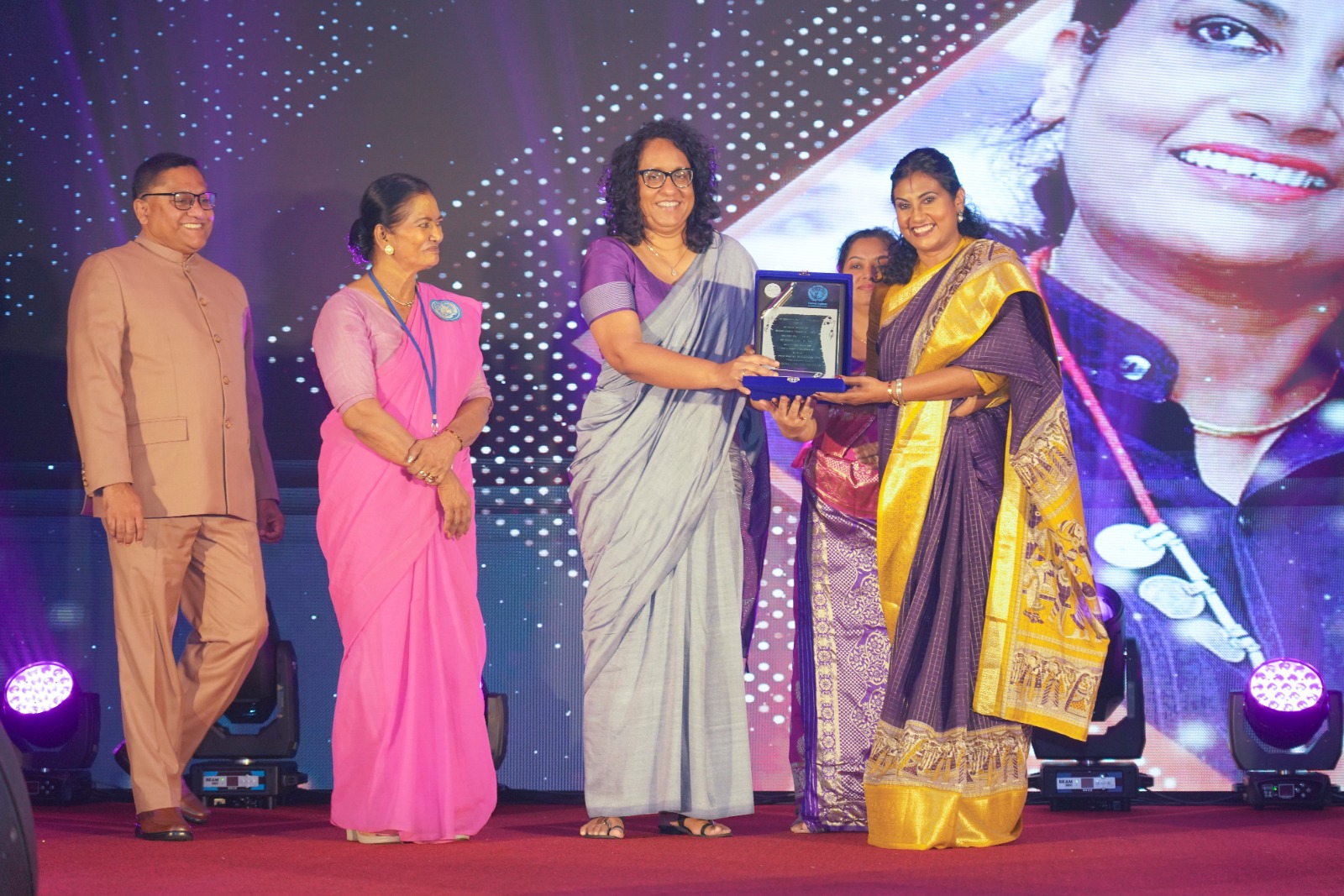
Prime Minister Dr. Harini Amarasuriya emphasized the urgent need for prompt and decisive measures to address the challenges, barriers, and discriminatory practices encountered by women both domestically and globally.
The Prime Minister made these remarks on Saturday (22) while addressing the International Women’s Day celebration organized by the United Nations Association in Sri Lanka, held at the Sri Lanka Foundation Institute in Colombo.
During the event, awards were presented in appreciation of women who have achieved significant accomplishments and earned societal recognition in different fields.
Delivering the key note speech, the Prime Minister further stated:
“Equality of all women including young female must be protected irrespective of their socio-economic status, educational background, religion, ethnicity, disability, or any other personal identity. Their fundamental rights must be safeguarded. Sri Lanka has a proud history of strong women who have contributed significantly to the development of the nation and I am well aware that many such remarkable individuals are present in this esteemed audience today.
Women are driving transformational change by assuming leadership roles in politics, business, and social initiatives. The government has implemented different policies and programme to empower women. The 2024 Women’s Empowerment Act has laid the foundation for new legal protections and the establishment of an Independent National Women’s Commission leading a significant step toward institutionalizing gender equality.
The government has prioritized increasing the participation of women in workforce by introducing entrepreneurship and digital financial literacy programme for rural women, along with establishing nine ministries for uplifting the economic level of women and the entire nation. Several initiatives were also incorporated into the recently approved budget. Nevertheless, female representation in leadership, decision-making, and economic participation remains disproportionately low. While efforts have been made to create opportunities in education, economic development, and healthcare for women and young female, it is imperative to acknowledge that there are much more remains to be done.
Although the women’s representation in Parliament has been doubled, it remains at approximately 10%. A greater representation of women is essential in political spheres, decision-making, and leadership roles. Currently, women’s participation in the formal workforce with pay is at 32%, which is significantly lower compared to the male counterparts.
Some individuals assert that achieving work-life balance is an unattainable goal for women, while simultaneously expecting them to manage all responsibilities. However, it is important to acknowledge that it is not possible to do everything. What is truly required is the opportunity for women to pursue what they aspire to do, within families and a society that values and respect women. It is imperative to foster an environment that offers greater support for women. In this regard, recognizing and appreciating the care giving responsibilities undertaken by unpaid women is essential.
Gender-based violence and discrimination remain prevalent in society. Addressing these issues requires urgent legal and social reforms. The journey toward gender equality cannot be undertaken in isolation. As a nation committed to the United Nations Sustainable Development Goals, particularly Goal 5 on Gender Equality, it is essential to maintain strong global partnerships and take sincere steps toward the empowerment of women. In a rapidly evolving world, empowering women must go hand in hand with ensuring their active contribution to national development and the United Nations in Sri Lanka continues to serve as a valuable advisor and advocate for women’s rights.”
Prime Minister Dr. Harini Amarasuriya reiterated the importance of implementing effective measures to identify and address the challenges, barriers, and discriminatory practices faced by women both locally and internationally.
The event was attended by the Minister of Foreign Affairs, Foreign Employment and Tourism, Vijitha Herath; Secretary-General to United Nations Association of Sri Lanka Mr. M.M. Rushaudeen; Assistant Secretary-General to United Nations Association of Sri Lanka Ms. Panchali Ratnayake; and several other distinguished guests.
[Prime Minister’s Media Division]
Latest News
China’s Xi hails ‘new golden era’ with Malaysia during trade tour

Chinese President Xi Jinping has met Malaysia’s King Sultan Ibrahim in Kuala Lumpur as part of a regional push to shore up Beijing’s trade relationships.
The diplomatic stop on Wednesday marks the second leg of Xi’s three-nation tour, which also includes Vietnam and Cambodia, and comes amid sharp tariffs imposed by the United States that are reshaping the global economic landscape.
Sultan Ibrahim welcomed Xi in a colourful ceremony at the golden-domed Istana Negara palace before his meeting with Malaysian Prime Minister Anwar Ibrahim at the administrative capital of Putrajaya.
Xi touted a “new golden era” of Chinese-Malaysian relations, following the 50th anniversary of diplomatic ties last year. The king announced new cooperation between the countries in various fields, including artificial intelligence.

“This is a hugely significant visit,” said Al Jazeera’s Rob McBride, reporting from Putrajaya. “It takes place during this unprecedented trade war that is developing with the United States, with both Malaysia and China finding themselves in the middle.”
Khoo Ying Hooi, an associate professor in the department of international and strategic studies at Malaya University, said the visit offered a chance to “test the waters for regional solidarity” amid the US trade disruptions.
“It’s not just about friendship, it’s about realigning the regional centre of gravity towards Beijing,” she said.
Malaysia is the current chair of the Association of Southeast Asian Nations (ASEAN) bloc, whose members are among the hardest hit by new US tariffs.
ASEAN member Vietnam, a manufacturing powerhouse, was slapped with 46 percent tariffs, and Cambodia, a significant producer of low-cost clothing for big Western brands, was hit with a 49 percent duty.
Malaysia, Southeast Asia’s third-largest economy, was hit with a lower tariff of 24 percent. Though the measures have been paused for 90 days, President Donald Trump has warned that no country is “off the hook”.
[Aljazeera]
Latest News
Severe traffic reported on Ella-Wellawaya road due to inclement weather

Police urge motorists who intend to use the Ella – Wellawaya Road to use alternative roads as there is a severe vehicle congestion due to inclement weather condition.
Latest News
UK Supreme Court backs ‘biological’ definition of woman
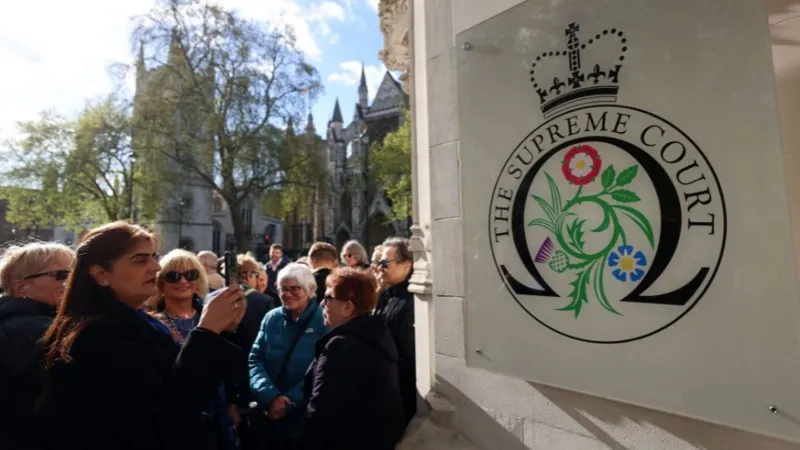
The UK Supreme Court has unanimously backed the biological definition of “woman” under the 2010 Equality Act.
It marks the culmination of a long-running legal battle which could have major implications for how sex-based rights apply across Scotland, England and Wales.
Judges sided with campaign group For Women Scotland, which brought a case against the Scottish government arguing that sex-based protections should only apply to people that are born female.
Judge Lord Hodge said the ruling should not be seen as a triumph of one side over the other, and stressed that the law still gives protection against discrimination to transgender people.
The Scottish government argued in court that transgender people with a gender recognition certificate (GRC) are entitled to the same sex-based protections as biological women.
The Supreme Court was asked to decide on the proper interpretation of the 2010 Equality Act, which applies across Britain.
Lord Hodge said the central question was how the words “woman” and “sex” are defined in the legislation.
He told the court: “The unanimous decision of this court is that the terms woman and sex in the Equality Act 2010 refer to a biological woman and biological sex.
“But we counsel against reading this judgement as a triumph of one or more groups in our society at the expense of another, it is not.”
He added that the legislation gives transgender people “protection, not only against discrimination through the protected characteristic of gender reassignment, but also against direct discrimination, indirect discrimination and harassment in substance in their acquired gender”.
Campaigners who brought the case against the Scottish government hugged each other and punched the air as they left the courtroom, with several of them in tears.
The Equality Act provides protection against discrimination on the basis of various characteristics, including “sex” and “gender reassignment”.
Judges at the Supreme Court in London were asked to rule on what that law means by “sex” – whether it means biological sex, or legal, “certificated” sex as defined by the 2004 Gender Recognition Act.
The Scottish government argued the 2004 legislation was clear that obtaining a GRC amounts to a change of sex “for all purposes”.
For Women Scotland argued for a “common sense” interpretation of the words man and woman, telling the court that sex is an “immutable biological state”.
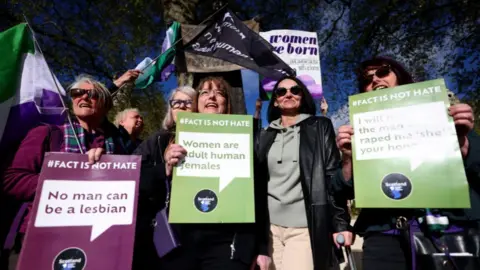
Outside the Supreme Court, For Women Scotland co-founder Susan Smith said: “Today the judges have said what we always believed to be the case, that women are protected by their biological sex.
“Sex is real and women can now feel safe that services and spaces designated for women are for women and we are enormously grateful to the Supreme Court for this ruling.”
A UK government spokesman said: “This ruling brings clarity and confidence, for women and service providers such as hospitals, refuges, and sports clubs.
“Single-sex spaces are protected in law and will always be protected by this government.”
Conservative leader Kemi Badenoch described the ruling as a “victory for all of the women who faced personal abuse or lost their jobs for stating the obvious”.
But Scottish Green MSP Maggie Chapman, a prominent campaigner for trans-rights, said: “This is a deeply concerning ruling for human rights and a huge blow to some of the most marginalised people in our society.
“It could remove important protections and will leave many trans people and their loved ones deeply anxious and worried about how their lives will be affected and about what will come next.”
The Scottish government has not yet commented on the ruling.
[BBC]
-

 News5 days ago
News5 days agoSuspect injured in police shooting hospitalised
-

 Features6 days ago
Features6 days agoRobbers and Wreckers
-

 Business6 days ago
Business6 days agoBhathiya Bulumulla – The Man I Knew
-

 Business5 days ago
Business5 days agoSanjiv Hulugalle appointed CEO and General Manager of Cinnamon Life at City of Dreams Sri Lanka
-

 Business7 days ago
Business7 days agoNational Anti-Corruption Action Plan launched with focus on economic recovery
-

 Features4 days ago
Features4 days agoLiberation Day tariffs chaos could cause permanent damage to US economy, amid global tensions
-
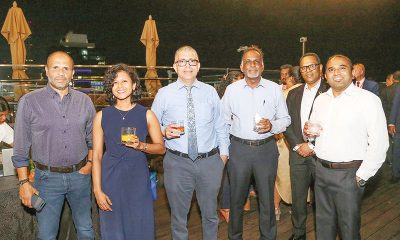
 Business4 days ago
Business4 days agoMembers’ Night of the Sri Lanka – Russia Business Council of The Ceylon Chamber of Commerce
-
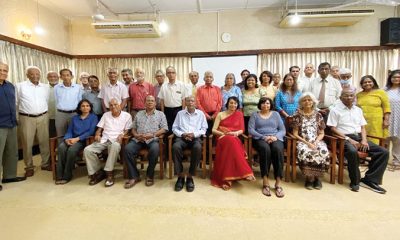
 Features4 days ago
Features4 days agoMinds and Memories picturing 65 years of Sri Lankan Politics and Society










